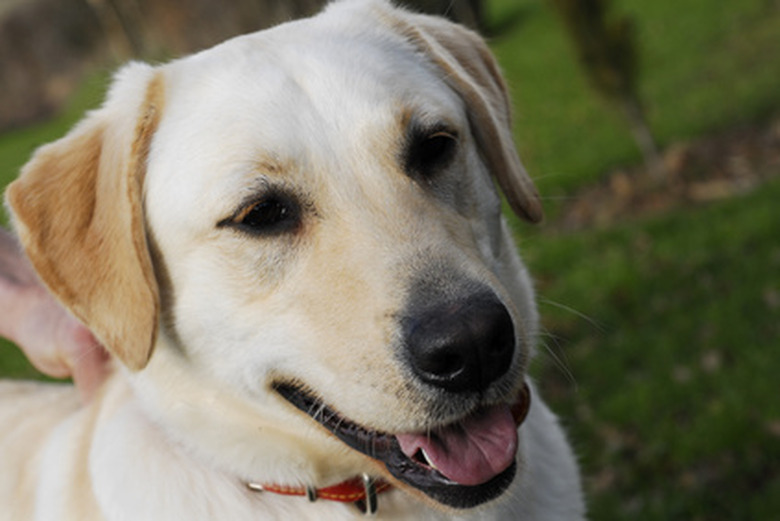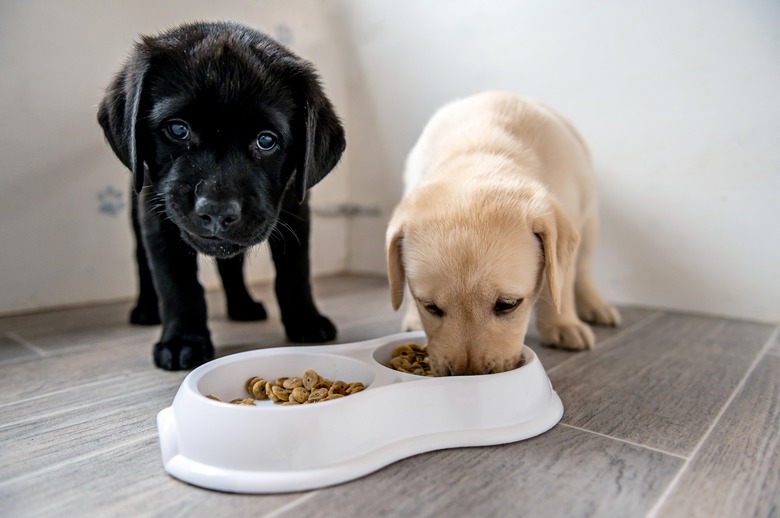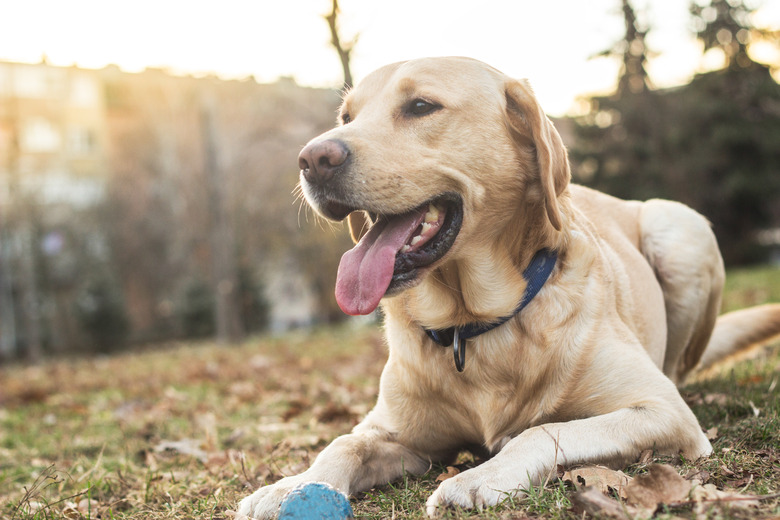How To Make Homemade Dog Food For Labradors
As large dogs, Labradors require good nutrition to live a long, healthy life. Some Lab owners feed their dogs homemade diets to avoid common fillers found in commercial dog food, including meat byproducts, corn, wheat, artificial colors, and additives. When all these are taken into consideration, fresh foods for dogs sounds like a good idea.
However, feeding a Lab from your kitchen requires careful attention to preparing balanced meals for this breed's high energy level. First, consider the drawbacks of a homemade diet. Meals must be balanced properly to provide optimal nutrition for your Labrador. Fresh foods must be stored carefully. Non-kibble diets also can be too soft for a Lab's teeth and gum health.
With these points in mind, consult your vet about a combination diet of some high-quality kibble and fresh foods. Also, consult your veterinarian before switching to a homemade diet for your older Lab or starting such a plan with a new puppy.
Ingredients for fresh food for dogs
Ingredients for fresh food for dogs
Before you start to look for recipes, you'll need to stock up on some basic ingredients that are safe for making homemade food for Labrador retrievers, such as fresh meat, poultry, and eggs; fresh or frozen vegetables; brown rice, oatmeal, and other whole grains; and yogurt or cottage cheese. Other components you might want to add to your fresh food for dogs are omega-3, fish or flaxseed oil, and canine vitamins and mineral supplements.
Avoid seasonings, such as salt, and never add onion to your Labrador's food. This is important because onion is very toxic for dogs and should never be added to homemade food for a Labrador puppy or dog. Some recipes advise that a small amount of garlic is acceptable and claim it has natural antibacterial properties, but it is best to avoid garlic entirely because the difference between moderation and poison isn't easily measurable. Other foods to avoid are raisins and grapes because they are also toxic to dogs.
Protein and fats in homemade dog food
Protein and fats in homemade dog food
Include the amount and kind of protein a Labrador should consume for good muscle mass. Your Lab can eat meat, fish, and cottage cheese for protein as well as boneless chicken and eggs. Calories a Lab should intake depend on the activity level of your pup, but protein needs are consistent: Adult dogs need at least 1 gram of protein per pound. Labradors weigh between 25 and 36 pounds, so the average Lab needs approximately 30 grams of protein per day.
Add good fats to each meal. Your Labrador needs approximately 5 percent fat in his diet, and good sources of fats are omega-3, fish, and wheat germ oils. Flaxseed and walnut oil also provide good fats. However, homemade puppy food should contain a little more fat because puppies burn off more energy than older dogs.
Grains in homemade dog food
Grains in homemade dog food
Feed your Lab whole grains, such as brown rice and oatmeal, and fresh or frozen vegetables. You can use carrots, cabbage, celery, and asparagus. However, if your Lab experiences gas problems, you might want to rotate the vegetables to see which one causes the problem and then eliminate that ingredient.
Include a spoonful of plain yogurt with one meal a day to provide your Labrador with calcium and the good bacteria needed for a healthy intestinal tract. Also, you can sprinkle one meal per day with a tablespoon of ground flaxseed or break open a fish oil capsule and drip oil into the food to add some extra omega-3.
Homemade food for Labrador retrievers
Homemade food for Labrador retrievers
Combine precooked ingredients for faster meals. A sample recipe for one meal combines 1 cup cooked poultry with no bones, 1/2 cup steamed vegetables, 1/2 cup prepared brown rice, and several tablespoons of no-sodium broth. If you want to cook one meal from scratch, gather 2/3 cup cubed uncooked meat, 3/4 cup raw sweet potato or carrot, 3/4 cup instant brown rice, and 1 cup water. Boil the meat and vegetables in water until tender, add the instant rice, and continue cooking until the rice is done, adding water as needed.
Adding supplements to fresh food for dogs
Adding supplements to fresh food for dogs
If you are concerned about vitamins, you can supplement any fresh food for dogs with a vitamin and mineral complex for at least one meal per day after cooking is complete. Pet shops sell a variety of brands, and your veterinarian can recommend the best one for your Labrador.
Calcium is particularly important for healthy Lab teeth and bones. Meats and vegetables are deficient in calcium, so it's necessary to add it. In addition to providing calcium via a supplement, you can also add buttermilk or egg shells to your dog's meals for an extra boost of this mineral.


